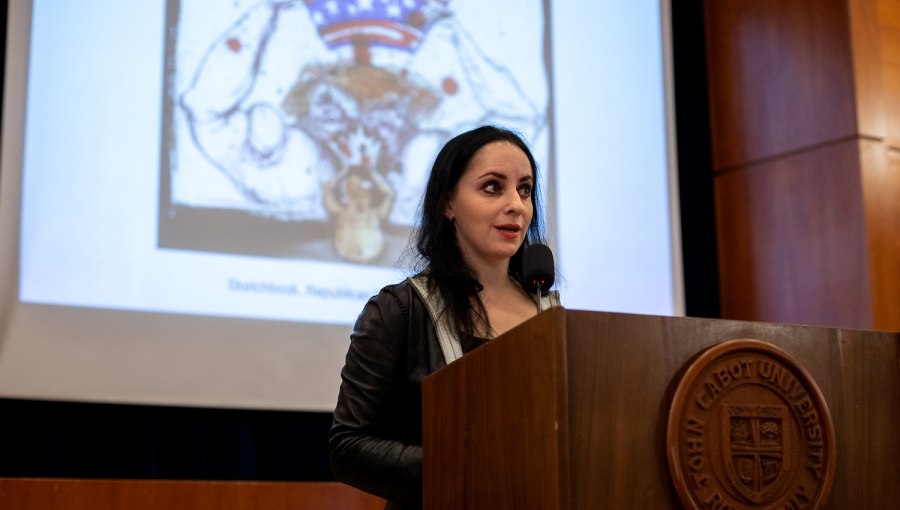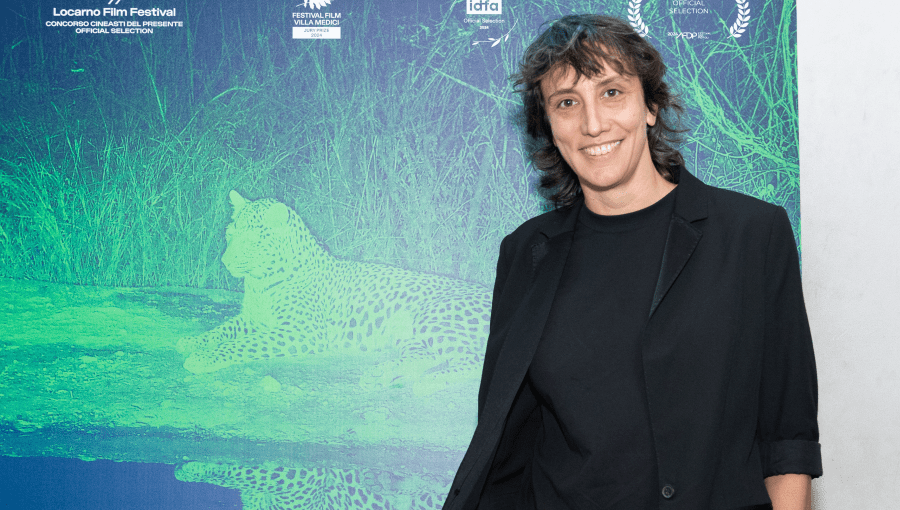The Intersection of Race, Gender, and Environment: Professor Miriam Tola
Professor Miriam Tola joined JCU’s Department of Communication and Media Studies in 2023. Her research explores the intersections between gender, race, and the cultural politics of the environmental crisis. She is the co-editor of The Routledge Handbook of Ecomedia Studies (2023) of which she also authored a chapter. In Fall 2023, Professor Tola will be teaching Social Media, Social Movements, Social Change, and Introduction to Visual Culture.

Tell us about your background.
I grew up in Sardinia, where part of my family still lives, and I try to visit as often as possible to enjoy the silence, the sea, and the wind. But I consider Rome my hometown, as this is where I went to college and started working as a film journalist and film festival programmer. After many years spent abroad, first in New York City and Boston, then in Switzerland where I worked as assistant professor in environmental humanities at the University of Lausanne, I am happy to be back in Rome and to join JCU.
How did you become interested in environmental humanities and ecomedia studies?
A central goal of the environmental humanities is to resituate human beings within the environment, thus challenging the common understanding of nature as just resources to appropriate. I became interested in this field during my years as a doctoral student in gender studies at Rutgers University. Thanks to amazing mentors and colleagues, I was exposed to research interrogating the cultural politics of gender, race, class, and species, as well as the dominant binary of society and nature. Part of my work focuses on the intersections of gender, race, and environments in film and media.
Tell us about your 2021 book Ecologie della cura. Prospettive transfemministe, edited with Maddalena Fragnito.
Ecologie della cura. Prospettive transfemministe, is an open-access edited volume published in Italian by Orthotes. It brings into conversation feminist, anti-racist, and ecological perspectives to explore the ambiguities of care. It interrogates the power dynamics at play in prevalent modes of distributing care across lines of gender, race, class, and species. Ultimately, the book proposes to revalue everyday acts of collective care as a counterpoint to individual self-improvement.
You were part of the editorial team of The Routledge Handbook of Ecomedia Studies. Tell us about it.
The Routledge Handbook of Ecomedia Studies is an open-access volume that brings together leading and emerging scholars from across the world to explore how media objects and systems are embedded in socioecological relations. The book covers topics including the aesthetic and politics of e-waste, the use of media in environmental justice movements, the life cycle of smartphones, and the Internet’s carbon footprint. The driving force of this project was my JCU colleague Antonio Lopez. We worked with the other co-editors (Adrian Ivakhiv, Stephen Rust, Alenda Chang, and Kiu-wai Chu) for over two years, and we are very happy with the result.
How would you describe your teaching philosophy?
As a teacher of media studies, my first goal is to create a learning environment that enables students to make sense of the relations between media processes and inequalities of gender, race, and class. To this end, I expose students to a diverse media archive ranging from photography, film, and digital media. My second goal is to cultivate shared learning practices in the classroom rather than focusing on individual achievements. For example, I often ask students to collaborate for assignments as a team of media researchers and makers. I also try to create an environment in which all students feel safe and supported in their learning experience and I emphasize collective care as a key practice to thrive during their time in college and beyond.
What made you decide to accept a position at JCU in Rome?
It is a great opportunity to be able to return to Rome, the city where I want to live. People here have a unique way of coming together and finding collective solutions to everyday problems.





